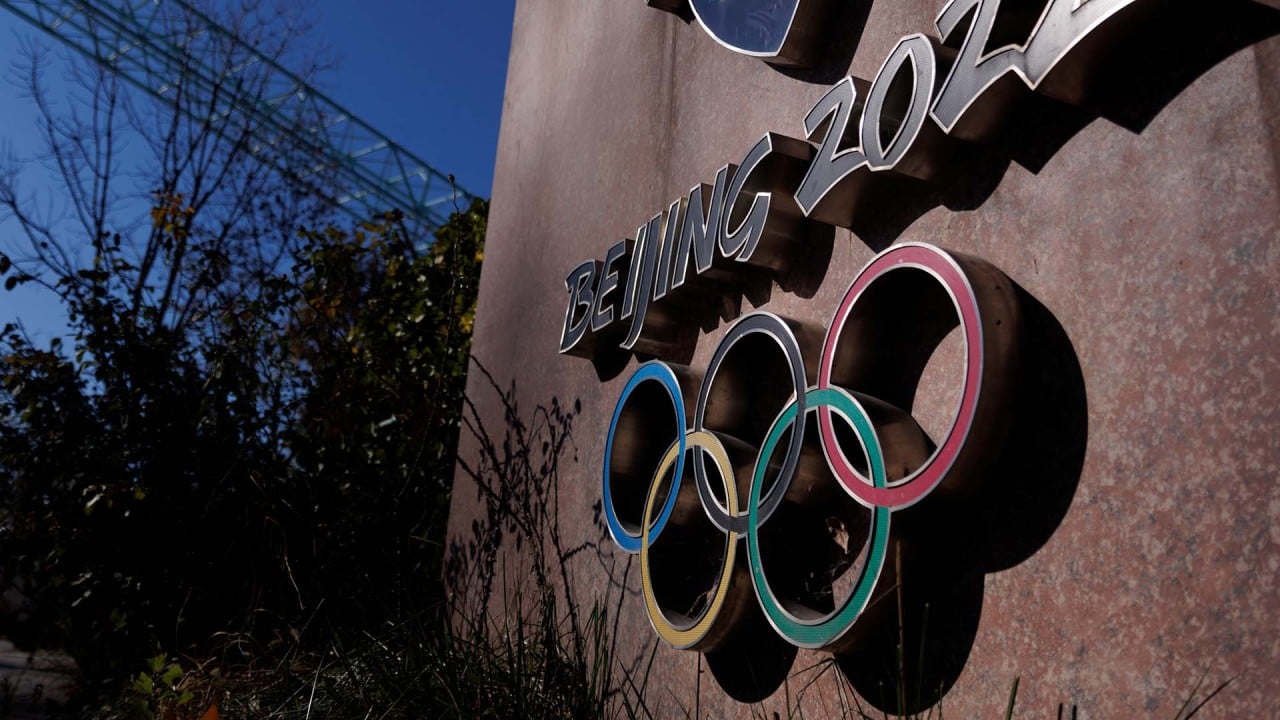
Beijing Olympic diplomatic boycott: EU foreign ministers aim to carve out ‘common approach’
- Attempt to determine a united position expected to lead to a heated debate on Monday
- Foreign Affairs Council also expected to discuss the growing China-Lithuania trade dispute
The European Union’s 27 foreign ministers will try to carve out a common position on whether to join the US-led diplomatic boycott of the Beijing Winter Olympics on Monday, with sources predicting that the discussion could “get messy”.
The debate, proposed by the French and Dutch governments, will take place at the monthly Foreign Affairs Council in Brussels, “in view of the decision taken by the Biden administration” to lead a diplomatic boycott of the Games, a senior EU official said.
The official added that while the bloc has taken “no decision” on whether to send any commissioners to Beijing in February, “a common European approach would be highly, highly recommended”.
However, with differing views on how the EU’s relationship with China should be managed, diplomats expect a heated debate.
Also on Monday’s agenda will be the escalating feud between China and Lithuania: Beijing has allegedly blocked some trade with the Baltic nation over its move to expand ties with Taiwan.
On Friday, the new German chancellor, Olaf Scholz, said he had not yet decided whether to join the diplomatic Olympic boycott.
“We are still looking for talks with many others because we want to act in a coordinated manner here,” Scholz said in Paris after meeting with French President Emmanuel Macron.
On Thursday, Macron had dismissed a diplomatic boycott, saying it would be “insignificant”.
Why China was ready with short guest list for Winter Games
“To be clear: you either have a complete boycott, and not send athletes, or you try to change things with useful actions,” Macron told reporters, adding that he was “in favour of action that has a useful outcome”.
Nonetheless, a French diplomatic source said that no firm decision had been made on the boycott ahead of Monday’s meeting.
Contrary to Macron’s statement, French Foreign Minister Jean-Yves Le Drian said he was seeking a common EU stance on the issue.
“When it comes to the issue of the diplomatic boycott, this question will be dealt with at the European level,” he said.

A unified EU position appears fanciful, with the bloc torn on many issues regarding its relationship with China.
Lithuania has already said it will not send any representation, although a government spokesperson declined to describe the decision as a “boycott”.
Hungary, on the other hand, would almost certainly be among the member states to send officials despite any blanket boycott.
Australia, Britain and Canada have followed Washington in confirming a diplomatic boycott; no heads of state, ministers or officials will accept invitations to attend. New Zealand has also said it would not send a delegation, but stopped short of calling it a boycott.
China downgrades ties with Lithuania after Taiwan opens de facto embassy
As to the growing feud between China and Lithuania, a senior EU official on Friday confirmed that Brussels’ top envoy to China, Nicolas Chapuis, had met with China’s customs authority.
A source familiar with the meeting, however, said that no progress had been made: “Chinese authorities are not providing any further explanation or assistance.”
Lithuanian businesses say they have been effectively frozen out of the Chinese market, with exporters unable to gain access to the customs system, and importers complaining that their Chinese trading partners are not shipping prepaid goods.
Vidmantas Janulevičius, the president of the Lithuanian Confederation of Industrialists, said he met with Lithuanian Foreign Minister Gabrielius Landsbergis and Minister for Economy and Innovation Aušrinė Armonaitė on Friday morning and urged them to secure financial backing from the EU.
Business leaders are seeking EU structural funds in the form of loans and guarantees, to be used for working capital. Without urgent support, Janulevičius said, some of the 200 companies he represents that are reliant on the Chinese market will go bust.
If Beijing refuses to cooperate with the EU investigation into Lithuania’s allegations, according to officials, Brussels will gather evidence for a WTO case, which could be launched on a fast track basis.
Even so, Janulevičius said, “by that stage, all the businesses will be dead”, noting that WTO cases typically take years to complete.
Bloomberg reported that the EU raised the Lithuania situation with WTO director general Ngozi Okonjo-Iweala, who in turn raised it with Chinese Premier Li Keqiang.


